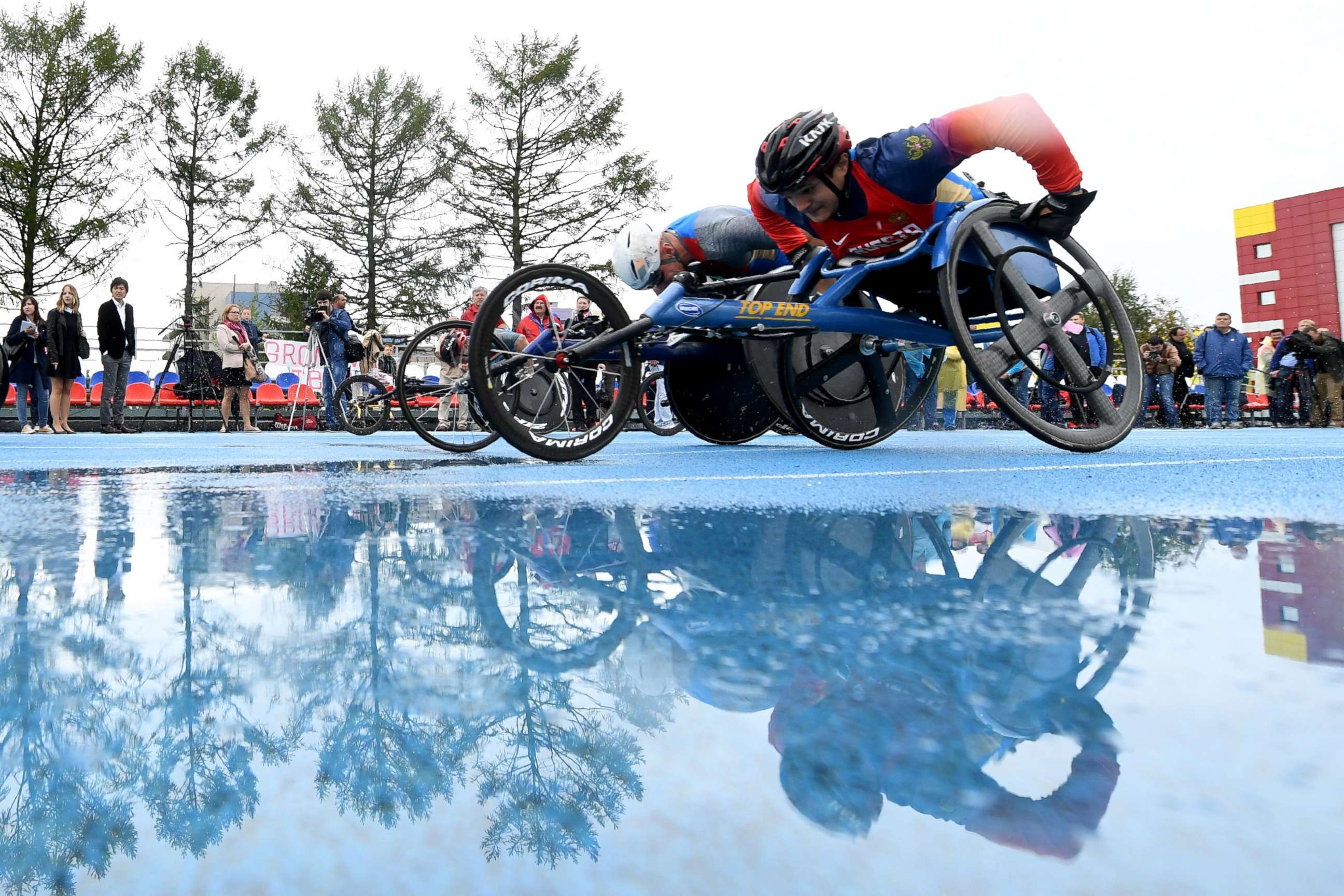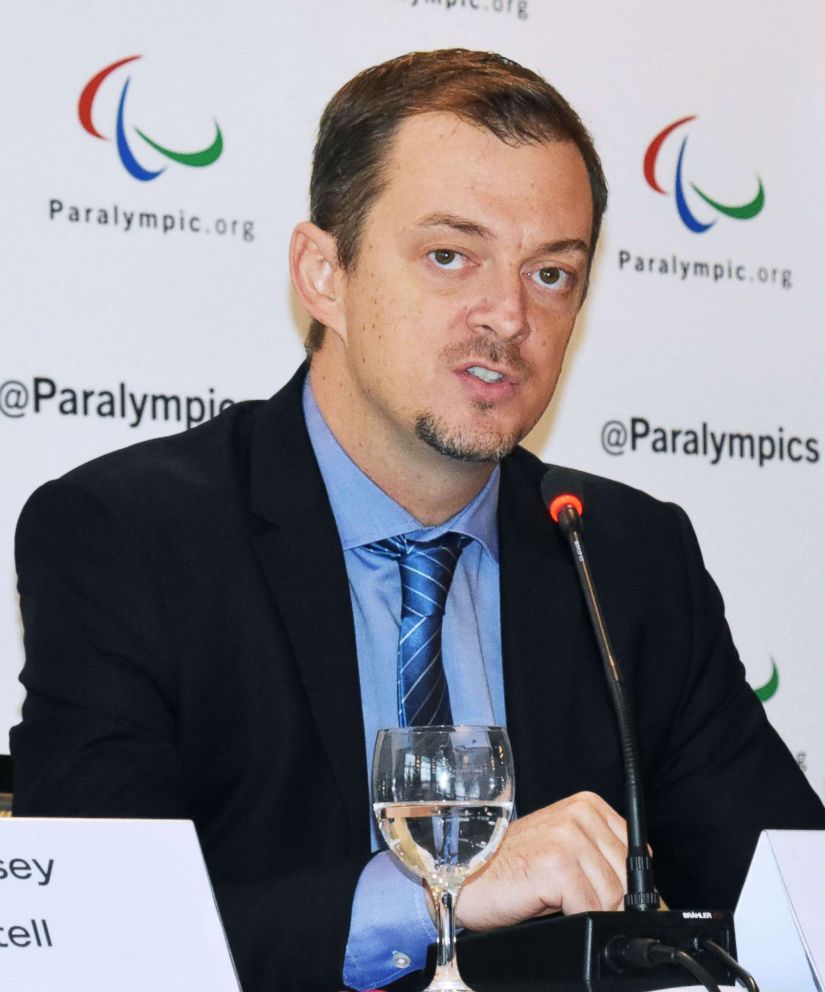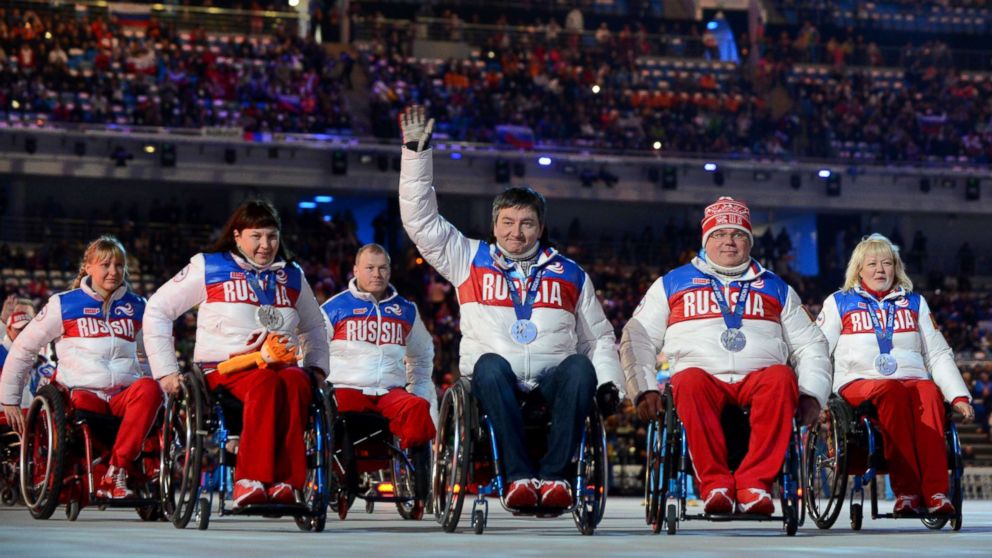Russia banned from Winter Paralympics over doping
— -- Russia has been banned from this year’s Winter Paralympics after the International Paralympic Committee found that the country had failed to reform itself sufficiently following its elaborate cover-up of doping by its athletes.
Some Russian athletes however will still be allowed to take part as neutrals in certain sports, provided they are able to meet certain conditions.
The decision means that Russia is barred a second time from a Paralympics over doping, after the IPC suspended it from the 2016 Paralympics in Rio de Janeiro, and it follows Russia’s recent banning from this year’s Winter Olympics.
The IPC’s president, Andrew Parsons, told a news conference in Bonn, Germany, that its board had voted to keep Russia’s national Paralympic committee suspended, meaning that Russia is excluded from taking part in the games in the South Korean town of Pyeongchang this March.
Parsons said although there had been improvement, the criteria for the Russian national committee to be reinstated had “not been met in full.”
"The IPC will allow Russian para-athletes who meet strict conditions to participate in March’s Paralympic Winter Games under the name Neutral Paralympic Athletes in the sports of alpine skiing, biathlon, cross-country skiing, snowboard and wheelchair curling,” Parsons said.
The Paralympics ban comes after the International Olympic Committee (IOC) barred Russia from the Winter Olympics in Pyeongchang this February over systematic doping, allowing only some Russian athletes to compete under under a neutral flag and forbidding Russia's national colors and anthem at the games.
The IOC has authorized 169 Russian athletes to compete as neutrals at the Winter Olympics after they passed an anti-doping panel.
The Paralympic Committee said Russian athletes allowed to take part in in its games in March will also have to have undergone additional testing. It expects around 30 to 35 athletes from Russia will participate in the Paralympics now.
The decision reflects how the Russian doping scandal of the past two years continues to hobble its sport. Investigations commissioned by the World Anti-Doping Agency (WADA) and largely confirmed now by inquiries by both the Olympic and Paralympic committees, found that Russian sporting officials had overseen an elaborate cover-up of doping by their athletes for years, sometimes aided by the country’s security services, that allowed dozens of Russian athletes to cheat, including at consecutive Olympics.

An investigation conducted for the anti-doping agency by the Canadian lawyer Richard McLaren found the scheme had reached its apotheosis during the Sochi Winter Olympics that Russia hosted in 2014. McLaren’s report found that positive doping samples from at least 11 Paralympic athletes had been directed to be covered up by officials from Russia’s sports ministry between 2012 and 2015. McLaren also found that six medal winners had had their samples tampered with during the Sochi Paralympics.
Parsons noted that there had been improvements in Russia’s doping system, though not enough. Although the Russian Paralympic Committee “remains suspended they have made significant progress and we have to recognize this," Parsons said, according to The Associated Press. "We now have greater confidence that the anti-doping system in Russia is no longer compromised and corrupted. We have also witnessed behavioral and cultural changes."
The Paralympic ban, however, was still tougher than that imposed by the Olympic Committee this year.

While those Russian athletes permitted to take part in the Winter Olympics will do so under the name “Olympics athletes from Russia” in special uniforms not unlike those of the Russian national squads, the Paralympians will be allowed to compete only with the status “neutral Paralympic athletes”, removing the country affiliation entirely.
The Paralympic Committee also took a tougher line during the Summer Paralympics in Rio de Janeiro in 2016, banning Russia entirely from the games, while the IOC permitted the international federations of individuals to choose which athletes to let in.
The 169 Russian athletes allowed to compete in the Winter Olympics is around half what the Russian Olympic Committee had hoped to send.
Russian officials have denounced the Olympic ban as a U.S.-led plot to pressure Russia. Russia’s president Vladimir Putin in December suggested that the doping allegations against his country were designed to harm his re-election chances and implied American intelligence agencies could be behind them.




